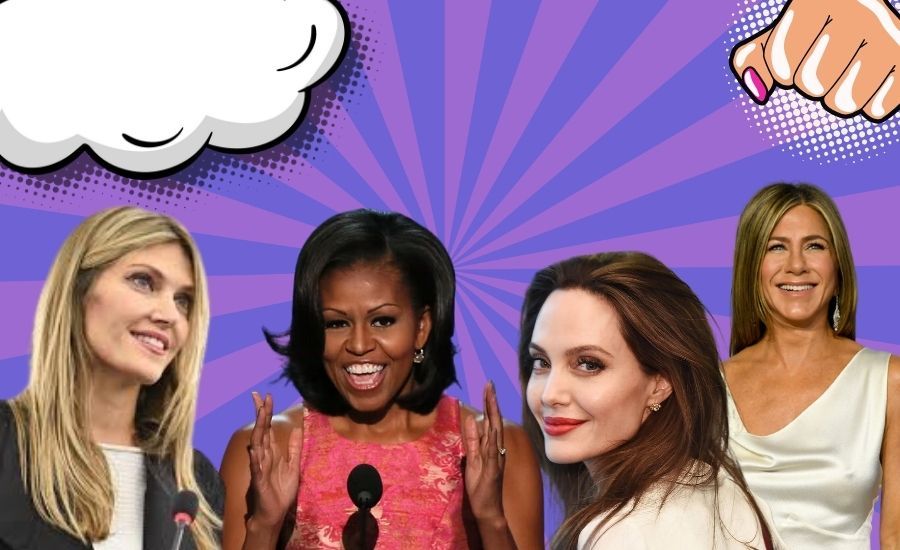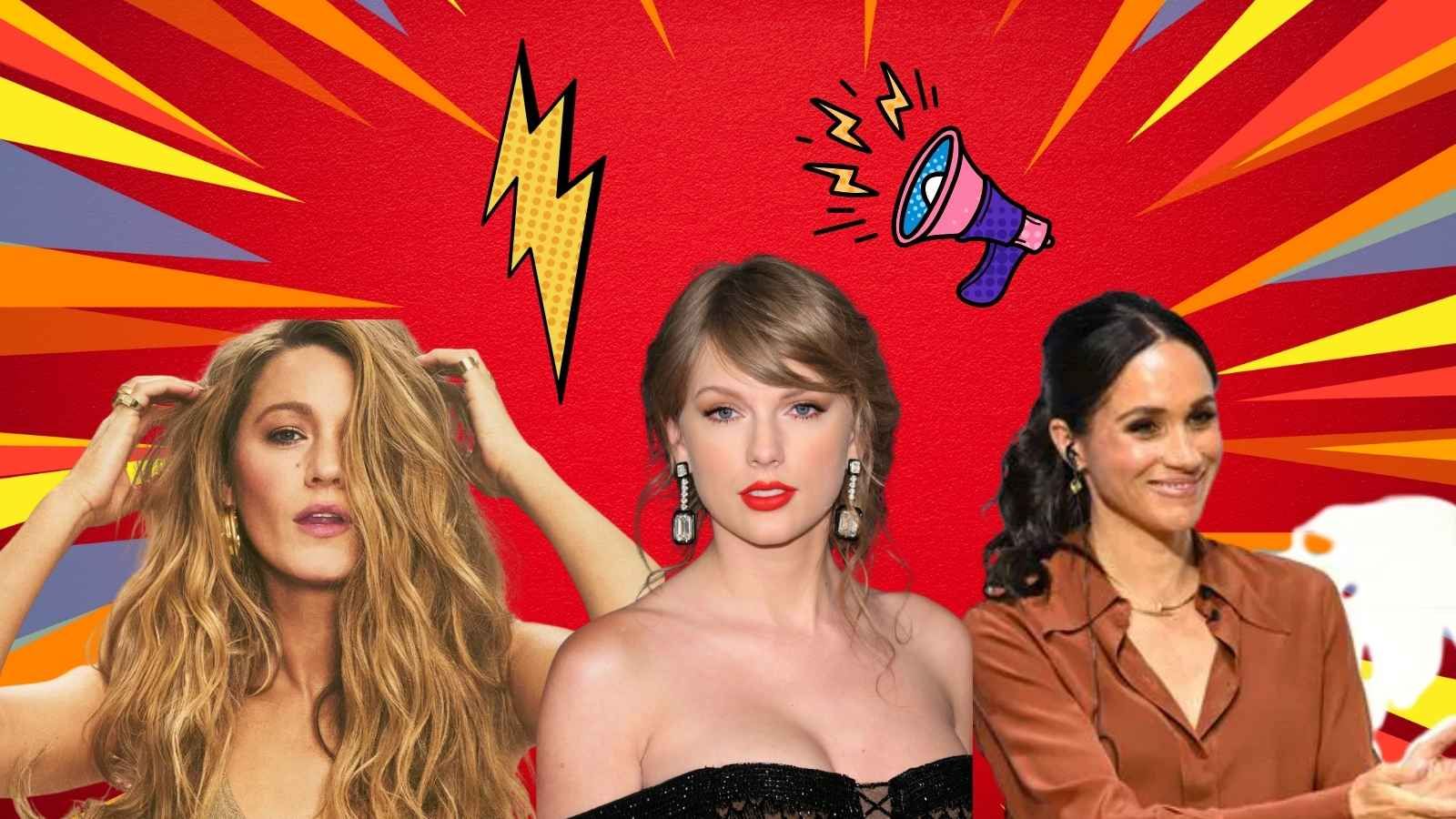Social media has undeniably transformed how we connect and share information, but it also presents unique challenges, particularly for women. According to many studies and research, women are disproportionately subjected to harsher judgment online, facing heightened scrutiny of their appearance, opinions, and actions.
Data show that it is increasingly clear that women and girls experience online disproportionate and different harms online compared with boys and men.
Following the recent drama about Blake Lively and Justin Baldoni and the much-discussed movie “It Ends With Us,” followed by substantial online scrutiny towards Blake Lively regarding the way she promotes the movie, we see how the online audience doesn’t hesitate to scan thoroughly and attack her whole personality intensely, finding “dirt” from her past and commenting on everything about her looks, partner choices, and actions. And Blake Lively is only one of the victims of this online court. Many famous (or not) people have been victims of online attacks and threats of “canceling” them because they did something “wrong.” And it’s not easy to recover from this constant criticism, which is not constructive; it’s mean and harmful.
Historically, this has not been a recent behavior towards women. Media and press seem to find it extremely easy to attack and mistreat women, especially for their personal choices. Men seem to be intact or -at least- not facing the same rage. The previous generations, Gen-X and Millennials, certainly remember the Clinton-Monica Lewinsky scandal, where she constantly faced intense public scrutiny and widespread condemnation for her consensual relationship with then-President Bill Clinton. This media coverage often focused on shaming and demeaning her while mainly overlooking the power imbalance inherent in the situation. A 22-year-old woman with a man of power. However, she took all the hits when the scandal broke out.
And who can forget about Jennifer Aniston and Angelina Jolie? That the press “threw an online party” after the disclosure of Aniston’s divorce from Brad Pitt and his entering into a relationship with Angelina Jolie immediately after. Aniston was the one who lost the handsome, sexy, and fantastic husband, and Jolie was the one who stole this “amazing” husband. The media heavily speculated about Aniston's desire to have children, often framing her inability to conceive as a personal failing and a contributing factor to the divorce, while Jolie was frequently cast as the "homewrecker." However, Brad Pitt didn’t have anything to do with this. While Pitt undoubtedly faced media attention, the narrative around him often cast him in a more favorable light compared to the scrutiny faced by Aniston and Jolie.

Another woman, a victim of the online “vice squad,” Meghan Markle, the Duchess of Sussex, experienced significant media scrutiny following her marriage to Prince Harry. The marriage was initially celebrated, but later, the public perception shifted, with criticism arising during her pregnancy, parenting choices, and home renovations, including instances of racism and attacks on her relationship with her family. These pressures ultimately led the couple to step back from their royal duties and relocate to the United States, where people are lurking around the corner for her next move to be analyzed criticized.
Taylor Swift couldn’t be excluded from the list, considering that she has faced significant scrutiny throughout her career. This includes criticism of her dating life, often framed in a manner that some perceive as slut-shaming. Her physical appearance, particularly her weight, has also been subject to public commentary. Her musical style and friendships have also been widely debated and sometimes dismissed. Perhaps most notably, the media response to her sexual assault case, where some minimized her experience, drew considerable criticism. While she has received praise, the prevailing narrative in some media circles has often been more negative than positive.
And the list is not focused only on the entertainment industry. No matter what their profession is, women cannot always escape their online destiny. For example, women in politics pretty much face the same behavior, no matter how much they contribute. Fridkin states in the Journal of Politics, “In senatorial races, women receive less campaign coverage than their male counterparts and the coverage they receive is more negative — emphasizing their unlikely chances of victory.”
The media heavily scrutinized Michelle Obama during and after her husband’s presidency. While her initiatives during that time were intriguing, she received most criticism mainly for her looks and her identity as a woman of color. Instead of her work, she received numerous comments about her body and eating habits.
Another victim of this online scrutiny was the Greek MEP Eva Kaili, who was arrested and charged with corruption in the European Union but was indeed sentenced before her trial by the media and the audience. She received a considerable amount of online rage, far beyond the legal case, and focused on her looks and connections as factors for advancing her career in the European Parliament rather than her participation in the actual case. However, the other four people who were charged along with her did not get that hostile rage, and nobody talked about their bodies and looks.
The list goes on, but it is not exhaustive and does not include only famous women. If you scroll down your social media, you will understand how different people treat women online than men. Comments about women’s looks, behaviors, and motherhood abilities are ubiquitous.
People love to express rage towards women much more than towards men.

Women are victims of stereotypes, and they are expected to fit into those stereotypes. They are often held to higher standards and face more criticism for their opinions and actions, even when compared to men expressing similar views. Women frequently face discrediting of their expertise or qualifications in usually dismissive or condescending language. And this language and behavior does not only originate from men -it originates from women as well -from mothers who scrutinize every mother who puts herself online to women who insult and feel superior to women who are dressed in a specific way that doesn’t match their preferences. This internalized misogyny stems from the pervasive societal messages and stereotypes that devalue women and their contributions, and online platforms are the most popular way to express it.
The question resulting from the above is whether we can create an online -and offline- society where women can have flaws but won’t be humiliated and harassed when those flaws come to the surface.
It’s at least childish to believe that women are perfect or that they don’t make mistakes or even be less than angels on Earth. They are not; they are human beings with positive aspects and flaws. They do things well, they can contribute equally to our society, and they can also make mistakes -big-time mistakes. However, it’s unfair for them to be judged more aggressively and treated disrespectfully, especially without having complete awareness of the circumstances. They also have the right to fairness and objectivity that is not elective and gender-based.
 THE WORKING GAL
THE WORKING GAL





